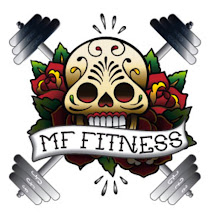Summer performance and training doesn't have to suffer while the heat is blaring outside. Here are some tips to staying away from dehydration, interrupted sleep, allergies, and heat induced laziness, etc.
Summertime is sweat o'clock time. The actual process of sweating to stay cool diverts blood away from muscles, which may leave them feeling sluggish. In cooler climates, when we step out in the cold our brain tells our muscles to contract, which generates heat for us to keep us warm. The opposite is happening outside right now. It is a form of self-preservation. When the outside temperature increase, our bodies can't dissipate heat as effectively, and then it becomes lazy o'clock.
So how do we fight this feeling? Think chameleon...
Avoid that lethargic feeling by easing into hot-weather outdoor activities. Do your main workouts before 11 a.m. or after 7 p.m., and go for a 15-to 20-minute light run or walk in the heat of the day. Increase the intensity and length of your run by 5 to 10 minutes after 2 weeks. When we are gradually exposed to warm environments, our bodies respond by being able to more efficiently distribute blood flow, which helps us increase sweat production so we can maintain effort without overheating.
Pollen from ragweed, Bermuda grass, Blue grasses, and Red Top grass are common during the summer, and if you're susceptible to allergies, running and outdoor workouts can exacerbate symptoms, such as itchy eyes, sneezing, and congestion. Runners for example, have a higher respiratory rate than less active people do (another reason how being active can improve any respiratory condition ie. asthma), that however, brings more pollen into the nose and lungs.
So how do we find relief? Shower immediately after outdoor exercise. Pollen that settles on hair, clothes, and eyelids can continue to trigger reactions. Those with contacts might fare better wearing their glasses, which may serve as a shield. You can also bring contact case with solution and swap out right after workout.
The additional hours of light during the summer reduce production of melatonin, a hormone that makes you feel sleepy. This may keep you up later and wake you earlier. This is problematic as sleep is important for muscle recovery. A light run or workout session might prove to be more difficult when performed on less hours of sleep.
How do we count more sheep? Exactly that- count more sheep by counting them earlier on in the night. Go to bed earlier!
Evening runs and workouts mean cooler temperatures and less pollen, but don't head out too late. Your brain will be stimulated and your heart rate and body temperature will be elevated for two hours after your run or workout.
Sweaty workouts leave you feeling with great accomplishments but are they leaving you dehydrated too?
How do we know for sure? Use science my friends. (I heart science.)
Start by determining your sweat rate. Weigh yourself naked on a digital scale before and after a run or workout. For every pound of weight loss, rehydrate with 16 ounces of fluid. When you are out in the heat, sip a sports drink, coconut water or actual water when you're thirsty, but don't drink more than the amount determined by your sweat rate. Remember extra water is not a terrible thing, You will end up sweating it out anyway if you are being active and it will be less water your body tries to retain. Don't fret about the term "water weight" during summer.
Checkout danger zones chart below according to the FDA:
Danger Zones
Recognize and deal with harmful heat ailments.
Heat Cramps
SPOT IT Spasms in the abdomen, arms, calves, or hamstrings
TREAT IT Stop running for the day; sip sports drink or water; gently massage the cramp.
Heat Exhaustion
SPOT IT Heavy sweating, headache, dizziness, nausea
TREAT IT Stop running; get in shade; sip sports drink or water; see a doctor if symptoms continue.
Heat Stroke
SPOT IT Confusion, rapid breathing, fainting
TREAT IT Stop running; call for emergency help; get in shade; cool skin with water.
Eat your water!!
Clearly drinking water is the best way to stay hydrated but it's not the only way either. For example, eating a three ounce cucumber is like drinking three ounces of water, but better. See, besides being water-rich, vegetables and fruits contain nutrients that can boost performance and health. In addition to drinking plenty of water, add fruits and veggies to your menu as much as possible in the summertime.
H2O & Electrolytes- peaches, cantaloupe, and strawberries.
H2O & Vitamin C -kiwi & citrus
H2O & Cancer defense- tomatoes & broccoli
H2O & Recovery- cherries
H2O & Immunity - yogurt & Kefir
H2O & Digestion - beans
And last but not least, the best drink is WATER but if you need variety- drink iced green tea (compounds called EGCG give it anti-inflamatory properties), and coconut water (has fewer calories & more electrolytes than sports drinks).
For fun: try bringing ice on your run or outdoor workouts- I like adding a few cubes under my hat... and most of all stay consistent! Don't let some silly heat get in the way of your fitness goals. That's just silly!!
Tuesday, July 26, 2011
Subscribe to:
Comments (Atom)
